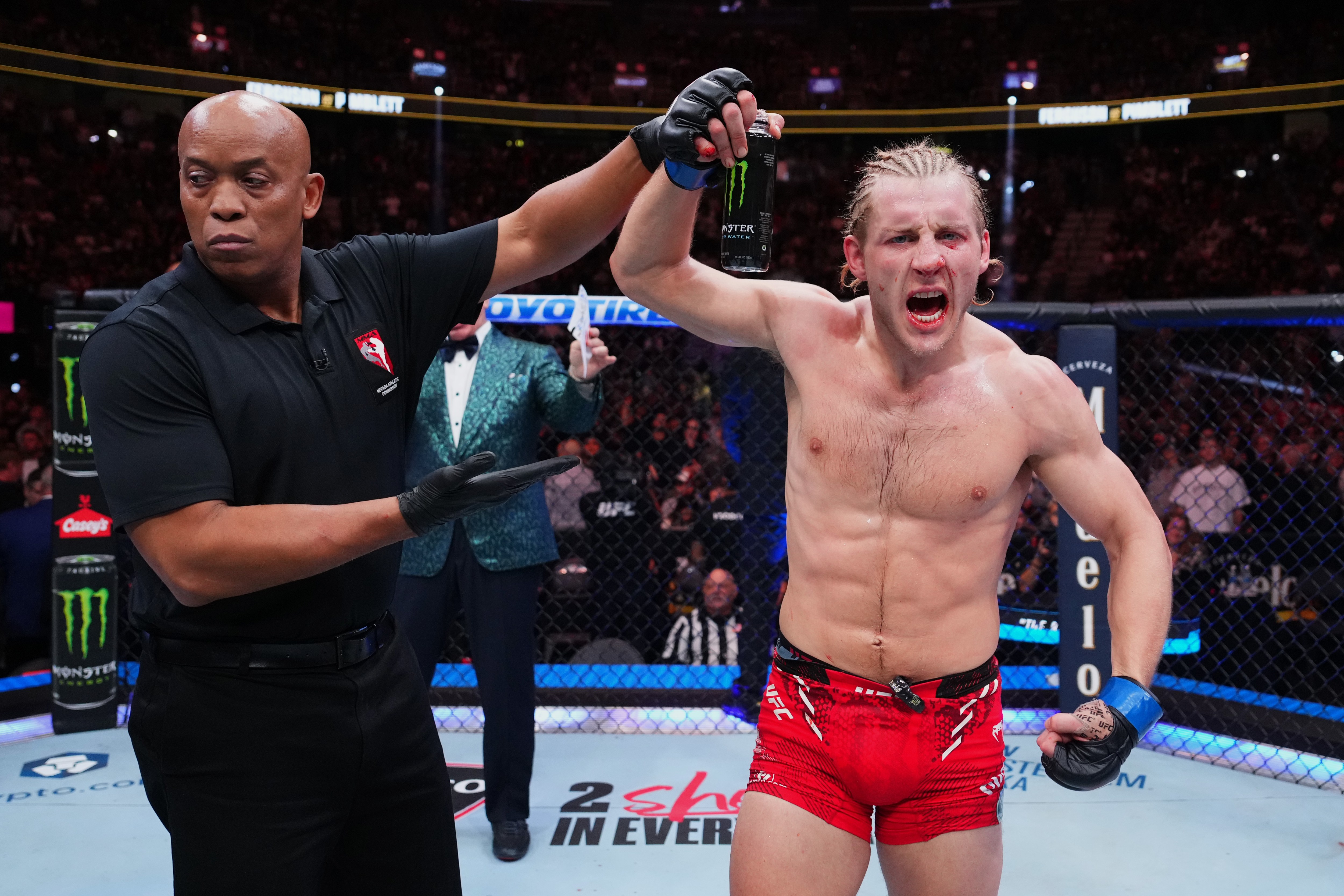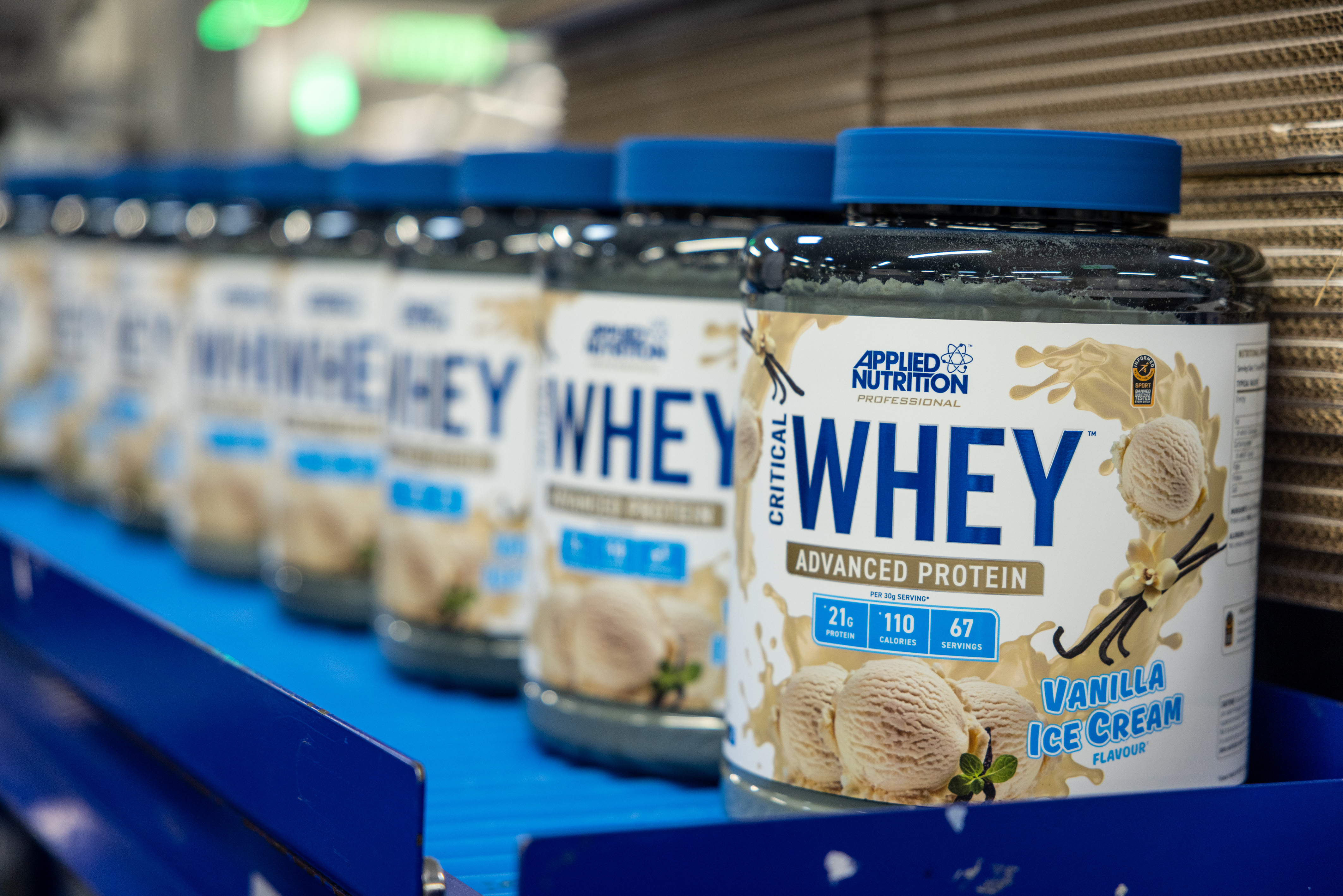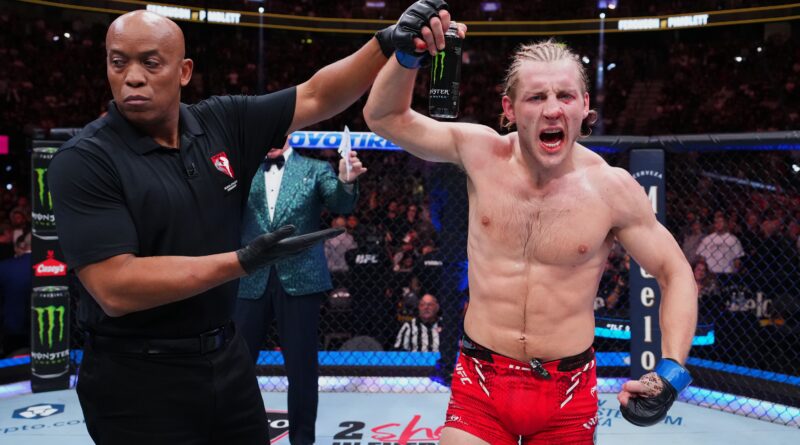A protein shake junkie looking to pump up the City
TThomas Ryder dons a lab coat and hair net and enters a noisy, windowless room. Inside are five production lines churning out herbal tablets, protein powders and isotonic gels that promise all kinds of health benefits to those who consume them.
The thick Scouser takes a tub full of something called cola-flavoured beef protein powder. “That’s made of cowhide,” he says as if it’s the most normal thing in the world. It was made of bones but it smelled and tasted like pus.
Ryder is the Willy Wonka version of today’s protein-obsessed society and we stop at his chocolate factory. The manufacturing plant for Applied Nutrition, a supplement business that Ryder took over for the past ten years, he has lived in a business park in Knowsley, Merseyside, a few miles from the council house where Ryder was brought up by his grandfather.
Now, the 40-year-old is planning a stock market investment that could earn him £125 million.
Applied Nutrition, backed by sports giant JD Sports, is set to float on the London Stock Exchange in the fourth quarter of this year. Ryder plans to sell his 55 per cent stake to 30 per cent in an offer that is thought to value Applied Nutrition at around £500 million, potentially giving it access to the FTSE 250.
Applied Nutrition’s sales grew by 41 per cent to £86 million last year and pre-tax profit reached £26 million.
“I know the potential, and we haven’t seen anything. I want to be part of that journey,” Ryder said. We know that we need to respect the market and we hope that the market will respect us. ”

Paddy Pimblett, UFC fighter from Liverpool, endorses Applied Nutrition products
JEFF BOTTARI/GETTY IMAGES
Applied Nutrition has won endorsements from athletes including UFC fighter Paddy “The Baddy” Pimblett. However, the company sells everything from collagen peptides to mushroom powder to appeal to anyone willing to use supplements to boost their health. . The latest representative of this name is Coleen Rooney.
The company’s CEO — who uses Applied Nutrition protein powder, creatine, collagen and greens powder every day — has been showing potential investors around the facility recently.
Ryder’s operations manager, Steven Granite, jokes that his boss’s Scouse accent and gun delivery have left City finance directors in need of a translator. the company’s public debut will be watched carefully in a market where the platforms are already very few.
Ryder’s business achievements have been against the odds. As a child he lived in a council flat where he had to climb four flights of stairs to get to the front door. Difficult circumstances at home meant that Ryder spent most of his childhood years at his grandfather’s council house in Kirkby, a poor town on the outskirts of Liverpool.
After Ryder’s father died when he was just 12 years old, he lived with them full time. He turns his attention to his grandfather, who worked 12 hours a night as a security guard, seven days a week, at the St Johns Market shopping centre.

The global sports nutrition market has grown by 51 per cent to £21.5 billion in the last five years
JAMES SPEAKMAN SUNDAY TIME
“With those low-paying jobs, you had to work long hours to make ends meet. My grandparents completely convinced me. Obviously we didn’t have much money but they made sure I didn’t leave empty handed. I have to explain [my success] to them.”
Ryder left school at the age of 16 with the determination to build a more successful life for himself. While working as a scaffolder with the local council, he pursued his projects on the side. After quitting his day job, he spent his evenings delivering pizzas for the Sopranos, his takeover business.
Ryder was a fitness addict with a fascination for exercise supplements, so when he was 18, he opened Body Fuel, a store that sells protein powders and creatine, which can help build muscles. In the late Noughties, aged 24, Ryder worked full-time in supplements and began selling to gyms and professional stores. One of the products Ryder sold was Critical Mass, a protein powder produced by a firm called Applied Nutrition.
In 2014, Ryder took over the brand and changed the products to lower their sugar content and improve taste. Powder tubs were first attracted by bodybuilders but Ryder soon found himself faced with rocketing costs, so he brought production in-house.

Ryder quickly realized that he had a business to expand
JAMES SPEAKMAN SUNDAY TIME
Ryder leased a small factory in Knowsley’s industrial estate, bought a 30-year-old blender and hired his first four employees. He quickly realized that he had a business to expand.
The global sports nutrition market has grown by 51 per cent to $28.1 billion (£21.5 billion) in the past five years and research firm Euromonitor predicts it will grow to $37.6 billion by 2028. Fifteen years ago, sports nutrition in the UK was considered something that was only for bodybuilders, but now it is an everyday thing their dogs take supplements,” Ryder says.
However, there are still many skeptics who question the health claims made by the products that line the shelves of health food stores. Are companies like Applied Nutrition selling synthetic products that exploit the ignorance of people who have a sincere desire to improve their health?
Ryder says: “That view of sarcasm is still very common and is caused by ignorance,” adding that his products are produced according to the guidelines of the European Food Safety Authority.
Myprotein founder Oliver Cookson, who has since founded Verve, the supergreens business, said consumers were attracted to the range of “high-quality, science-backed supplements” produced by Applied Nutrition.
In 2020, Ryder began discussions with several private equity firms about selling part of his stake in the company. At the time, Applied Nutrition was holding unrelated talks with JD Sports to develop a range of supplements to be sold in its fitness chain.
In his first meeting with Ryder, Peter Cowgill, who was JD’s executive chairman, committed to buying a stake in Applied Nutrition at a price that matched a proposed private equity offer. Ryder jumped at it.
“It was apparent from the first meeting that Tom had great passion, understanding of his market and was willing to do what it took to be successful,” Cowgill said. “I saw a little of him…
JD, which has a 30 percent stake, plans to sell up to between 5 and 10 percent of the float. Since leaving JD in 2022, Cowgill has reinvested in Applied Nutrition in his capacity and will be appointed to the board as a non-executive director. The board, chaired by AJ Bell founder Andy Bell, also includes former Holland & Barrett boss Tony Buffin, drinks industry veteran Marnie Millard and JD Sports chief financial officer Dominic Platt.
Ryder built the company in his own image: humble and down to earth. The manager walks around the narrow corridors of the unwelcoming office to greet everyone enthusiastically by name.
However, Applied Nutrition may have to rethink how it operates when it has other shareholders to answer to. For example, Ryder appointed his girlfriend of several years, Lydia Paxton, as head of HR in May last year. With Paxton reporting to the chief operating officer, rather than Ryder himself, it raises the question of whether employees would feel comfortable sharing a confidential complaint with HR.
“He [Lydia] he was the head of HR in another company [beforehand] and I like to think that the staff feel like they can talk to him in private without anything coming back to me,” he says. “He’s very hardworking and takes his job seriously.”
Paxton is currently on maternity leave – the couple had twin daughters a few months ago – and Ryder says she hasn’t decided whether to return to work.
Ryder believes moving his business will help give Applied Nutrition the edge it needs to compete with industry giants such as Glanbia Performance Nutrition and protein brand Dymatize, produced by New York-listed BellRing Brands.
Yet for someone with such lofty ambitions, Applied Nutrition is smartly managed. The company, which has no debt, has been funding its expansion with its own cash. It is currently undergoing an expansion of its manufacturing facility that will give it the capacity to handle nearly double its current sales.
The opportunity to grow in America – which accounts for half of the world’s supplement sales – will form the centerpiece of Applied Nutrition’s pitch to investors. The company opened an office in Dallas in 2022 and Ryder expects that sales in that country – £5 million last year – will grow to the point of opening a production center across the Atlantic.
“We have a huge growth path in the next few years but, once you add the US, I think we can go lights out.”
For now, though, Ryder looks around his warehouse in Merseyside, filled with flour destined for shipments from Malta to Saudi Arabia and China, with a proud look on his face.
The fact that we make products in my backyard in Knowsley and ship them all over the world – that means a lot to us.

#protein #shake #junkie #pump #City
